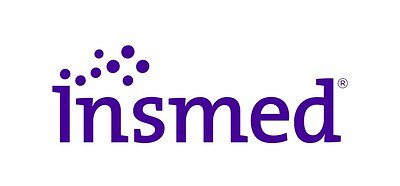
BRINSUPRI Receives EU Green Light: New Hope for Bronchiectasis Patients
The European Commission has approved Insmed’s BRINSUPRI, the first targeted therapy for non-cystic fibrosis bronchiectasis in the EU. This marks a significant step forward for the 600,000+ affected Europeans.
BRINSUPRI Receives EU Green Light: New Hope for Bronchiectasis Patients
BRUSSELS, BELGIUM – November 18, 2025 – The European Commission has granted marketing authorization to Insmed Incorporated’s BRINSUPRI (brensocatib), a first-in-class therapy for the treatment of non-cystic fibrosis bronchiectasis (NCFB) in patients 12 years and older experiencing two or more pulmonary exacerbations annually. This approval signals a crucial advancement in the management of a chronic and debilitating respiratory disease affecting an estimated 600,000 individuals across the European Union, with another 2 million potentially undiagnosed.
Addressing a Significant Unmet Need
For years, treatment options for NCFB have been largely limited to managing symptoms – airway clearance techniques, antibiotics to combat infections, and anti-inflammatory drugs. These approaches, while helpful, don’t address the underlying inflammatory processes that drive the disease progression. NCFB is characterized by abnormal and permanent widening of the airways, leading to chronic mucus buildup, frequent lung infections, and a gradual decline in lung function. “The approval of BRINSUPRI is a game-changer for bronchiectasis patients in Europe,” commented a leading respiratory physician. “Prior to this, we lacked a therapy that directly targets the inflammatory mechanisms driving the disease. This provides a new avenue for slowing disease progression and improving quality of life.”
BRINSUPRI works by inhibiting dipeptidyl peptidase 1 (DPP1), an enzyme involved in the activation of neutrophils – a type of white blood cell that plays a critical role in inflammation. By blocking DPP1, the therapy aims to reduce neutrophilic inflammation in the airways, ultimately lessening the frequency and severity of pulmonary exacerbations. This novel mechanism of action differentiates BRINSUPRI from existing therapies and offers a potentially more effective approach to managing the disease.
Clinical Data Supports Efficacy and Safety
The European Commission's decision is based on robust clinical data, including the Phase 3 ASPEN trial, published in The New England Journal of Medicine. The trial demonstrated a statistically significant reduction in the annualized rate of pulmonary exacerbations with both 10mg and 25mg doses of BRINSUPRI compared to placebo. Specifically, the 25mg dose showed a 19.4% reduction in exacerbation rates and a demonstrable delay in lung function decline over a 52-week period. The data demonstrated the efficacy of the therapy in slowing down disease progression and improving lung function.
The Phase 2 WILLOW trial also contributed to the positive efficacy profile of BRINSUPRI. Safety data from both trials showed that BRINSUPRI was generally well-tolerated, with the most common side effects including headache, gum inflammation and mild skin rashes. “The safety profile is encouraging,” noted an independent healthcare analyst. “While monitoring for potential adverse events is important, the benefits seem to outweigh the risks for many patients.”
Insmed’s Expansion and Market Potential
BRINSUPRI's approval in the EU is a significant milestone for Insmed, further solidifying its position as a leader in the development of innovative therapies for rare pulmonary diseases. The company received US FDA approval for BRINSUPRI earlier this year and has been rapidly building its commercial infrastructure to support the launch in both markets. Analysts predict that BRINSUPRI could reach peak annual sales of $5 to $7 billion globally, making it a key driver of Insmed’s revenue growth. “BRINSUPRI represents a substantial commercial opportunity for Insmed,” stated a financial analyst specializing in the pharmaceutical industry. “The company has successfully transitioned from a development-stage biotech to a commercial-stage biopharmaceutical company, and BRINSUPRI is poised to become a major revenue generator.”
Insmed's financial performance has been strong, with revenues increasing significantly in the past year. The company’s investment in research and development continues, with a pipeline of promising candidates targeting other rare pulmonary diseases. “They’ve demonstrated a clear commitment to addressing unmet medical needs in the pulmonary space,” commented a healthcare investor. “That’s attractive from a long-term investment perspective.” The company’s pipeline includes ongoing development of ARIKAYCE for refractory MAC lung disease and TPIP for pulmonary arterial hypertension, further diversifying its portfolio and enhancing its growth potential. The EU approval for BRINSUPRI is expected to be rolled out across member states over the coming months, with Insmed actively working with local health authorities to secure access for eligible patients.
